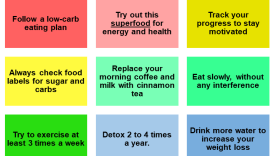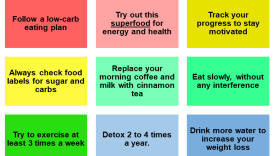Fuel Your Body and Soul: Pure Living for a Healthy You

Importance of a Healthy Lifestyle
In today’s fast-paced world, the importance of a healthy lifestyle cannot be overstated. People often find themselves consumed by work, social commitments, and digital distractions, which can lead to neglecting their physical and mental well-being. A healthy lifestyle lays the foundation for a happier and more fulfilling life. For instance, consider Jane, a busy marketing executive. Jane initially ignored her health, fueling her body with junk food and skipping physical activity. However, after experiencing frequent fatigue and stress, she realized she needed a change. By adopting a balanced diet, regular exercise routine, and proper rest, Jane not only boosted her energy levels but also significantly improved her mood, productivity, and overall health. Some key benefits of a healthy lifestyle include:
- Fuel Your Body and Soul: Pure Living for a Healthy You
- Importance of a Healthy Lifestyle
- Understanding Pure Living
- Nutrition for Wellness
- Benefits of Whole Foods
- Importance of Hydration
- Physical Activity and Its Significance
- Different Forms of Exercise
- Incorporating Movement into Daily Routine
- Rest and Relaxation
- Importance of Quality Sleep
- Stress Management Techniques
- Mind-Body Connection
- Meditation and Mindfulness
- Strategies for Mental Well-being
- Improved Physical Health: Reduces the risk of chronic diseases such as diabetes, heart disease, and obesity.
- Enhanced Mental Well-being: Regular physical activity and a nutritious diet contribute to improved mood and reduced anxiety.
- Increased Longevity: Healthy habits can lead to a longer life filled with vitality and zest.
As more individuals recognize the critical link between lifestyle choices and health outcomes, the movement toward pure living is gaining traction.
Understanding Pure Living
Pure living transcends mere physical health; it encompasses a comprehensive approach to living well. It promotes the consumption of natural, unprocessed foods, mindfulness in daily activities, and a holistic perspective on wellness. Imagine a world where every meal is composed of fresh, locally sourced ingredients without artificial additives. This is the essence of pure living—prioritizing sustainability and minimizing one’s environmental impact while boosting personal health. Here’s how one can embrace this lifestyle:
- Focus on Whole Foods: Incorporate fruits, vegetables, legumes, whole grains, and lean proteins.
- Mindful Consumption: Be present and appreciate every bite, making food choices based on nutritional value rather than convenience.
- Connection with Nature: Spend more time outdoors, fostering a sense of community and physical well-being.
By understanding and implementing pure living principles, individuals can harness the power of nature and nourish both body and spirit. This journey promotes not just physical health but a heightened sense of awareness and connection to the world around us.
Nutrition for Wellness
Benefits of Whole Foods
Transitioning into the realm of nutrition, the benefits of whole foods are paramount in achieving overall wellness. Whole foods are minimally processed and free from artificial ingredients and additives, making them the gold standard for anyone pursuing a healthier lifestyle. Consider Thomas, an avid runner. Initially, he relied on convenience foods that were quick to prepare but lacked nutritional value. After suffering from recurrent fatigue during his runs, he experimented with incorporating more whole foods into his diet. With each meal packed with colorful fruits, leafy greens, and whole grains, Thomas noticed a remarkable increase in his energy and endurance levels. Here are some compelling benefits of embracing whole foods:
- Nutrient Density: Whole foods are rich in essential vitamins, minerals, and antioxidants that support body functions.
- Improved Digestion: Foods high in fiber, such as fruits and vegetables, promote digestive health and regularity.
- Sustained Energy: Whole foods provide steady energy without causing spikes and crashes in blood sugar levels.
Incorporating a variety of whole foods can dramatically enhance one’s well-being, making them an integral part of any nutrition plan.
Importance of Hydration
Equally essential to nutrition is the topic of hydration. Water is often overlooked but is a critical component of wellness. It plays a vital role in almost every bodily function, from regulating body temperature to facilitating digestion. Let’s take a look at Emily’s experience. After realizing that she often felt tired and lethargic, she decided to track her water intake. What she discovered was eye-opening: she was only consuming half of the recommended amount of water each day. After committing to drinking more water, Emily quickly felt a surge of energy and improved her focus and mood. Here are a few reasons why staying hydrated is vital:
- Cognitive Function: Even mild dehydration can impair attention, memory, and overall brain function.
- Physical Performance: Adequate hydration improves circulation, reducing the risk of muscle cramps and fatigue during exercise.
- Detoxification: Water aids in flushing out toxins and waste products from the body, promoting kidney health.
To ensure sufficient hydration, aim for at least 8 glasses of water daily, and incorporate hydrating foods such as cucumbers, oranges, and watermelon into your diet. By prioritizing both whole foods and hydration, individuals can profoundly improve their overall health and wellness.
Physical Activity and Its Significance
Different Forms of Exercise
As we delve deeper into the concept of nutrition for wellness, we can’t overlook the significance of physical activity. Engaging in regular exercise not only enhances physical fitness but also contributes to mental clarity and emotional well-being. There is a diverse array of exercise types, each catering to different fitness goals and preferences. Take Michael, for instance. A busy dad, he initially found himself overwhelmed with work and family responsibilities. After attending a community fitness class, he discovered a passion for high-intensity interval training (HIIT) and yoga. Now, he balances his fitness routine with both cardio and flexibility exercises, leading to enhanced strength and reduced stress. Here’s a quick overview of some popular exercise forms:
- Cardiovascular Exercises: Activities like running, cycling, and swimming boost heart health and increase endurance.
- Strength Training: Weightlifting and resistance exercises improve muscle strength, aid in weight management, and promote bone health.
- Flexibility and Balance: Practices like yoga and Pilates enhance flexibility, improve posture, and increase bodily awareness.
Regardless of preferences, finding the right exercise can significantly elevate one’s quality of life.
Incorporating Movement into Daily Routine
While scheduled workouts are essential, incorporating movement into daily routines can be equally beneficial. It’s about making conscious choices that promote activity throughout the day. For example, Sarah, a remote worker, began integrating movement into her workday. Rather than sitting for hours, she scheduled short breaks to stretch, walk around her home, or do a few squats. This simple adjustment not only invigorated her but also improved her productivity and focus. Here are some practical ways to incorporate more movement into daily life:
- Take the Stairs: Opt for stairs instead of elevators to sneak in some cardio.
- Walk or Cycle for Short Errands: Running errands? Consider walking or cycling instead of driving.
- Set a Timer for Movement Breaks: Use a timer to remind yourself to stand, stretch, or take a short walk every hour.
- Join a Group Activity: Whether it’s a dance class, hiking group, or sports team, engaging with others can make movement more enjoyable.
Incorporating these practices ensures that physical activity becomes a natural and enjoyable part of daily life, ultimately enhancing overall wellness and vitality.
Rest and Relaxation
Importance of Quality Sleep
Moving forward from physical activity, it’s crucial to understand the pivotal role that rest and relaxation play in achieving overall wellness. Among the essential elements of rest is quality sleep, which is often overlooked in today’s hustle-oriented society. Good sleep is not just about the number of hours spent in bed; it’s about the depth and quality of that rest. Consider Lisa, a college student juggling classes, a part-time job, and a bustling social life. For years, she operated on minimal sleep, believing she could make up for it with caffeine. However, persistent fatigue began to affect her concentration and health. Learning the importance of quality sleep, Lisa adjusted her routine—reduced screen time before bed, created a calming nighttime ritual, and aimed for consistent sleep hours. The transformation was remarkable; her energy levels soared, and her academic performance improved significantly. Here are a few compelling reasons why quality sleep is essential:
- Cognitive Function: Adequate sleep enhances memory retention, learning ability, and overall cognitive performance.
- Emotional Health: Sleep directly impacts mood regulation. Poor sleep is often linked to anxiety and depression.
- Physical Health: Good sleep is vital for healing and recovery, supporting immune function and weight management.
Investing in quality sleep should be a priority for anyone striving for holistic health.
Stress Management Techniques
In conjunction with rest, effective stress management is another component of relaxation that significantly contributes to wellness. Chronic stress can take a toll on both physical and mental health, leading to various health issues if left unaddressed. Meet Tom, a healthcare worker who once faced burnout from long hours and emotional strain. He recognized the need for stress relief and began experimenting with various techniques. By incorporating mindfulness and breathing exercises into his daily routine, Tom learned to manage stress more effectively, which also allowed him to be more present for his patients. Here are some practical stress management techniques to consider:
- Mindfulness Meditation: Short meditation sessions can help clear the mind and reduce anxiety.
- Deep Breathing Exercises: Taking time to focus on your breath can calm the nervous system and reduce stress levels.
- Physical Activity: Regular exercise is a natural stress reliever, stimulating the production of endorphins.
- Journaling: Writing down thoughts and feelings can help clarify emotions and reduce stress.
By prioritizing both quality sleep and effective stress management techniques, individuals can achieve a more balanced and serene state of being. This holistic approach to rest and relaxation ultimately contributes to robust physical health and emotional wellness.
Mind-Body Connection
Meditation and Mindfulness
Continuing our exploration into wellness, it’s essential to examine the powerful relationship between the mind and body. A vital aspect of this connection lies in practices such as meditation and mindfulness. These techniques can significantly enhance mental clarity, emotional stability, and overall health. Take Sam, a busy entrepreneur drowning in deadlines and responsibilities. He often felt overwhelmed and found it challenging to focus. After learning about mindfulness, he decided to dedicate just ten minutes a day to meditation. Initially hesitant, he soon found that this simple practice helped quiet his racing thoughts and provided him with a new perspective. After just a few weeks, Sam reported feeling less anxious and more centered, both personally and professionally. Here are some benefits of incorporating meditation and mindfulness into daily life:
- Stress Reduction: Regular meditation can help lower cortisol levels, reducing the body’s stress response.
- Enhanced Focus: Mindfulness practices improve concentration and cognitive flexibility, making daily tasks more manageable.
- Emotional Regulation: These practices foster greater awareness of emotions, enabling individuals to respond rather than react in challenging situations.
Starting with just a few minutes daily can lead to significant improvements in mental health and overall well-being.
Strategies for Mental Well-being
Alongside meditation, various strategies can support mental well-being and nurture the mind-body connection. A holistic approach is key to maintaining a balanced and healthy life. Consider Emma, who found herself battling stress and anxiety. She decided to implement lifestyle changes that focused on well-being. By incorporating small, manageable strategies, she improved her mental toughness and resilience. Here are effective strategies that can help foster mental well-being:
- Establish Healthy Routines: Consistent sleep schedules, balanced meals, and regular exercise create stability and promote mental strength.
- Connect with Nature: Spending time outdoors can reduce stress levels and enhance mood. Even a brief walk in the park can work wonders.
- Engage in Hobbies: Pursuing interests and hobbies—whether painting, gardening, or cooking—can serve as an excellent outlet for stress and encourage creativity.
- Foster Relationships: Building and maintaining supportive relationships can provide emotional support and promote a sense of belonging.
By actively engaging in these strategies, individuals can strengthen their mind-body connection and cultivate resilience amidst life’s challenges. Ultimately, nurturing both mental and physical health fosters a more harmonious existence, empowering individuals to thrive in their everyday lives.





